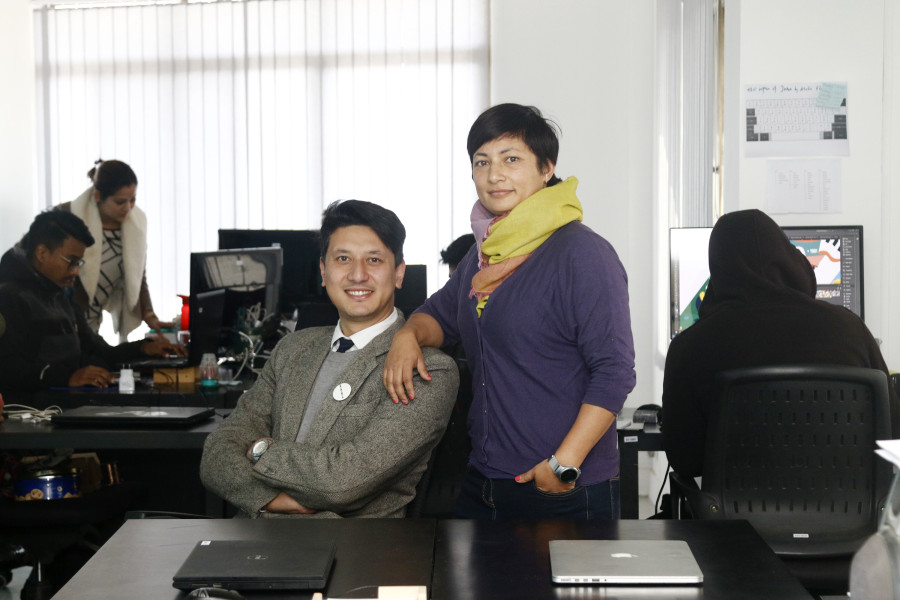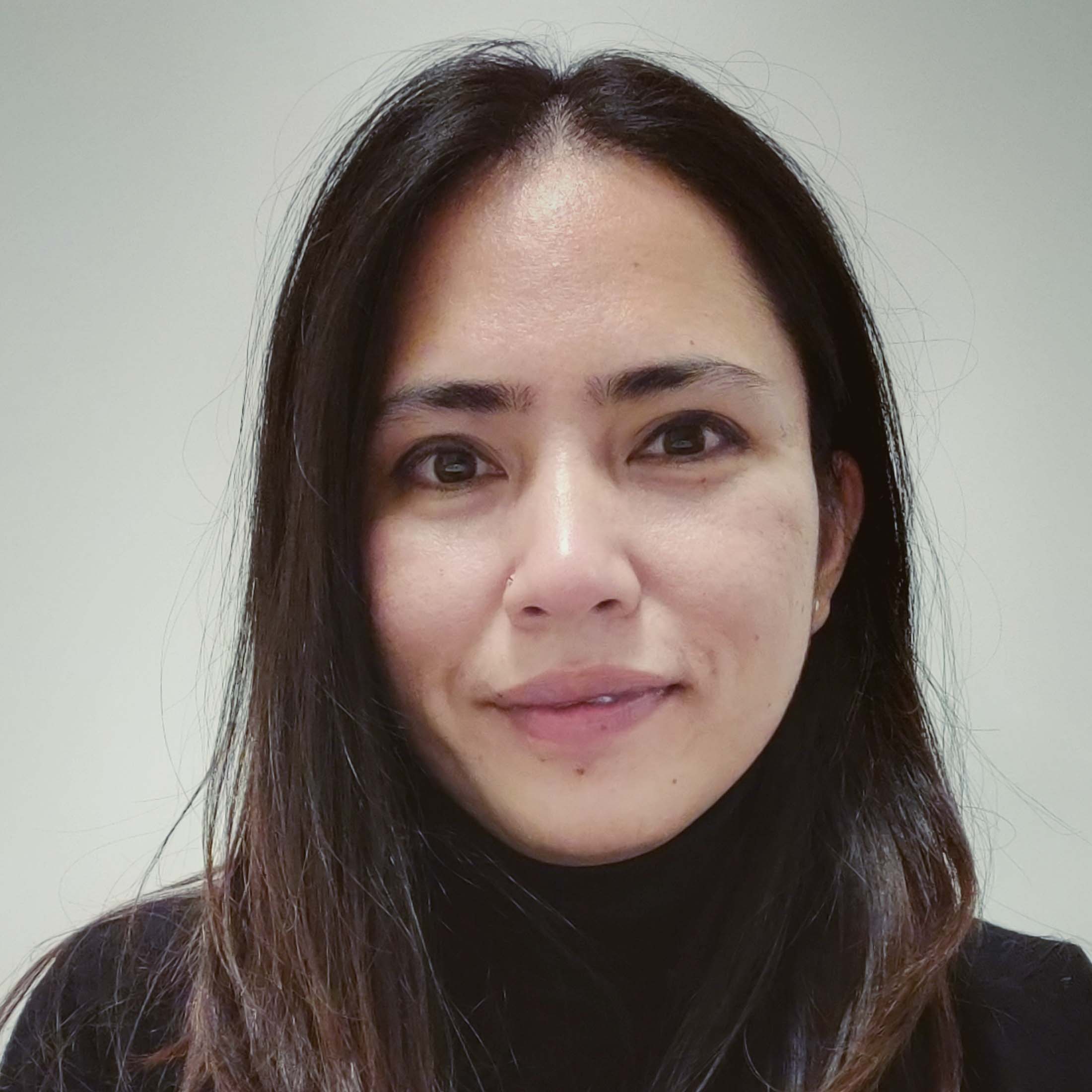Interviews
Nepali clients now value design, creativity
When Kreeti Shakya and Manish Shrestha returned to Kathmandu in 2010, after completing their education in the US, they both wanted to join an advertising industry.
Alisha Sijapati
When Kreeti Shakya and Manish Shrestha returned to Kathmandu in 2010, after completing their education in the US, they both wanted to join an advertising industry. While Shakya had a Bachelors in Design Technology and a Master’s in Business, Shrestha had a background in computers, but was interested in art, design and business. They figured that advertising was the best avenue to pursue their interests. However, they soon realised that there is a significant disconnect between creativity and business, leading them to open their own creative studio. Kazi Studios started in 2010 and since then, the company has worked on a number of innovative creative projects, including two Nepali board games—Samrajya and Jatra. They’ve also branched out with an outlet that sells creative niche products (Alchi Store) another that focuses on traditional Nepali arts (Allare) and an automation smartphone app (Smart Maka). In this interview with the Post’s Alisha Sijapati, Shakya and Shrestha talk about blending creativity with business, building board games and running multiple companies. Excerpts:
How did Kazi Studios start? What were your initial challenges?
When we started working here, we realised that advertisers and clients don’t really pay attention to the design aspect.
No one was willing to pay for designs and our creativity wasn’t really valued. Everything was mostly about media-buying and new designs weren’t respected or acknowledged. Most designs were actually literal translations of international ads. Hence, we chose to start our own creative studio that helps find solutions for our clients. We thought it would be good to be part of a change. So, we started a creative agency, working exclusively on creativity. The first three years were tough. The paradigm shift was the hardest. It was like swimming against the current. We started charging clients on an hourly basis, and gave them an estimate, but trying to explain how we worked was a difficult battle.
How did you manage to find stability?
For the first three years, we weren’t getting paid as per our standards. But things turned around altogether when we got an assignment for a UNICEF website project. It brought us into the limelight. Over the years, we have worked with various local and international organisations such as Winrock, WWF and World Bank. The difference between working with international organisations and locals is clear: they have a better work ethic; they know their standards and are constant with their feedback. What we have realised over the years is that INGOs/NGOs understand and value design. From the very beginning, we didn’t really advertise our company, so we were advertised through word of mouth. This year, we worked with three companies and charged by the hour. This clearly shows that clients now value and respect design and creativity. We see that positive changes are taking place, especially when it comes to people you previously associated with appreciating your work.
How did the idea for Samrajya and Jatra come about?
When we returned to Kathmandu from the US in 2010, we brought along Settlers of Catan—a board game that originated from Germany. This inspired us to begin work on our first-ever Nepali board game in 2016, Samrajya, which is based on the story of Prithvi Narayan Shah’s invasion of the Kathmandu
Valley. As a Nepali-made board game with local elements, Samrajya became hugely popular, which led us to come out with an expansion pack of drinking cards called Bhatti.
Jatra came about in around October 2018 and is built around the Gai Jatra legend. The game is aimed at helping kids learn social and communication skills while also building creativity, imagination and boosting their self-confidence.
What about the Alchi store and Allare?
Alchi and Allare happened after Samrajya. All of us were venting our frustration that we needed to do something that would help explore our creativity and not just restrict ourselves to our clients’ demands. We want to be different. Our traditions are cool, but we needed to be cooler and more current, and relevant with our designs and products. There are different types of people we cater to. At Alchi, what we are trying to do is connect with those who are young at heart, who are fun. Alchi is whimsical. All the products are less than Rs 3,000, and they are our brand carriers. However, at Alchi, we don’t display Allare products because that’s a totally different segment. Allare is a little more high end and the products are derived from traditional arts.
Both of you are occupied with the different entities under Kazi Studios. How do you manage time and master multi-tasking?
We are very fortunate to have a wonderful team working with us. They share a sense of ownership over their work, and they know and understand their responsibilities well. They work diligently under deadlines. We have a young team that loves to explore new challenges and take risks. Some of our ideas have worked whereas others just didn’t see the sun’s rays.
As a creative design company, how do you deal with competitions?
Competition is good for us. Previously, it was very difficult for us, especially when it came to finances, but over the years, our work has been valued and it’s making competition tough. In a way, it’s good for us. Now that there are other people doing amazing jobs, it keeps us on our toes. We constantly need to come up with new ideas. The market is also elevating in design. The more competition, the better for us.
What are your future plans?
Initially, a lot of clients tried to dictate our designs and we had to take a stand. There was always conflict brewing, but we learnt ways to get approval. Over the years, we’ve realised that there is a whole lot of difference between an artist and a graphic designer. As an artist, you get to work with flexibility but with graphic design, things are little different—we are solution finders. Although things are changing for the better, we hope that creative studios like ours are given more opportunities in the future. We also have other plans. For Alchi, we are planning to go for a franchise model, and with Allare, we plan to come out with more products and take it to an international level.




 10.95°C Kathmandu
10.95°C Kathmandu












